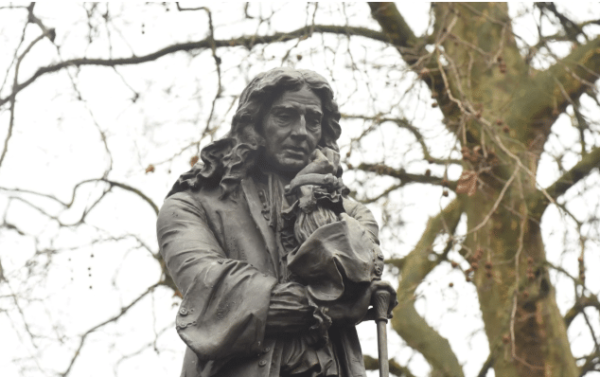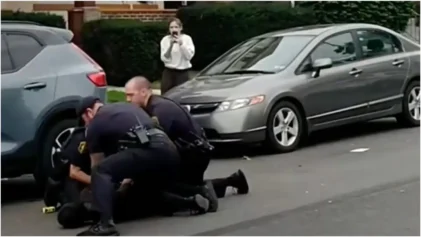The plaque on a statue honoring British slave merchant Edward Colston will be changed to detail his atrocities against enslaved Africans to deter protesters from vandalizing it.
The plaque is set to be added to a statue of the 17th-century trader, attributing him to the deaths of nearly 20,000 people, including as many as 4,000 women and children aboard his slave ships, the Daily Mail reported. The Bristol City Council submitted a proposal this week to add the secondary plaque explaining Colston’s instrumental role in the slave trade.

The statue honoring Edward Colston has repeatedly been vandalized and defaced by protesters in recent weeks. (Image courtesy of The Telegraph.)
Though he made the town filthy rich, Colston has long been a divisive figure among Bristols for his original role in what was known as the Royal African Company, which turned the sale and transport of enslaved Africans to work on plantations in the Americas, into an industrial scale practice during the mid-17th century. As a merchant, he gave fellow Bristols access to slave trade routes and raked in huge profits by transporting enslaved Blacks over the next several decades.
In 1895, the city erected a statue honoring and praising Colston as ” … one of the most virtuous and wise sons of their city.” That same statue has been the target of protesters who took issue with the way the original plaque lauded the slave trader, according to The Telegraph. Colston’s likeness has been repeatedly vandalized in recent weeks with “yarn-bombings” and paint attacks.
In an effort to quell the outrage, the Bristol Council proposed adding second plaque that will read: ” … As a high official of the Royal African Company from 1680 to 1692, Edward Colston played an active role in the enslavement of over 84,000 Africans (including 12,000 children) of whom over 19,000 died en route to the Caribbean and America.”
“Colston also invested in the Spanish slave trade and in slave-produced sugar,” it continues. “As Tory MP for Bristol (1710-1713), he defended the city’s ‘right’ to trade in enslaved Africans.”
The council’s plaque proposal has been met with criticism from some who say the proposed wording ignores Colston’s philanthropic work.
“It includes misinformation and cheap political shots unworthy of a permanent public monument,” resident Julian Hill told the newspaper.
The plaque is the latest move by the city to distance itself from Colston and his legacy. Just last month, Bristol’s Lord Mayor Cleo Lake removed a portrait of the notorious slave trader from her office and replaced it with a drawing of a lion instead.
“I’m coming to the end of my first month in office, and this is my parlor, which is a lovely space,” said Lake, who was elected in May. “I spend a lot of time here — I am here nearly every day. I won’t be comfortable sharing it with the portrait of Colston.”
Local schools, businesses and other establishments named after Colston have also tried to disassociate themselves by brandishing a new name.
According to the Council, locals have called for Coltson’s statue to be removed an placed in a museum instead. Recently, a plaque with the words “unauthorized heritage” was added to the effigy, and read ‘This commemorates the 12,000,000 enslaved of whom 6,000,000 died as captives,” The Telegraph reported.
Council workers removed the plaque, but it wasn’t long before someone put it up again.


